Resort real estate, the "illegitimate child" of the market
In Resolution 08/2017, the Politburo determined to make tourism a spearhead industry, attract social resources to invest in tourism development, invest in large-scale projects, entertainment venues in key areas...
Thanks to that, recently, many investors have poured money into tourism real estate projects, resorts, hotels or high-end resorts. However, the tourism real estate segment is facing many legal problems.
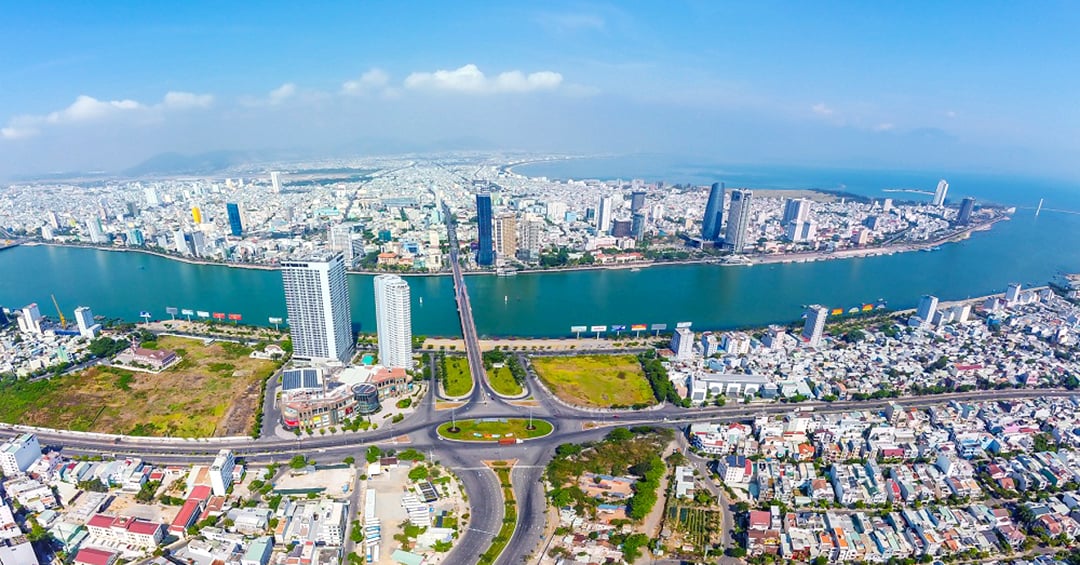
Illustration photo. (Source: DK)
At the workshop "Amending the Land Law: Creating land for tourism", which took place on the morning of October 19, Mr. Nguyen Van Dinh, Vice President of the Vietnam Real Estate Association, said that currently, Vietnam has more than 200 tourism real estate projects that have been implemented, creating nearly 100,000 condotels, 3,000 villas, and 15,000 new hotel rooms.
By 2030, Vietnam could become a tourism powerhouse, with 160 million domestic visitors and 50-70 million international visitors, requiring about 500,000 accommodation rooms, not to mention other types of services, especially high-end tourism, which is almost non-existent.
According to Mr. Dinh, in the current context, Vietnam has only achieved 1/3 of the infrastructure system to be able to meet the demand and the quality is not high in the future. And this number has been stagnant in the past few years, because the legal issues have not been resolved.
Mr. Dinh said that resort real estate is like the “illegible child” of the market. Because the Land Law has not mentioned the names of tourism real estate developers, this group of subjects is absent from the Land Law, Investment Law, and other regulations related to the real estate market.
“There are more than 100 large-scale tourism projects that are on hold, waiting for legal solutions. If this situation continues, it will discourage tourism investment, discourage investors, and even local authorities who want to promote investment will face difficulties,” said Mr. Dinh.
There are many other difficulties.
Meanwhile, Lawyer Nguyen Hong Chung, Chairman of the Board of Directors of DVL Ventures, Vice Chairman of the Hanoi Real Estate Club, said that tourism and resort real estate projects still face a more difficult and somewhat "difficult" problem, which is the regulation of cases where the State reclaims land for socio -economic development for national and public interests.
Accordingly, the Project in which the State recovers land is determined to be for upgrading technical infrastructure and common social infrastructure of the population, ensuring social security for the population, excluding projects with the goal of developing tourism, entertainment, recreation or combining commercial housing with tourism development, service facilities, entertainment, recreation.
However, the draft revised Land Law does not have any provisions on land recovery for new urban area projects. Therefore, it is necessary to add the content of "New Urban Area projects with a scale of over 300 hectares" to the types of real estate products in the revised Land Law to ensure the synchronization of the technical infrastructure system and social infrastructure.
According to Mr. Chung, in the period from 2015 to 2019, tourism developed strongly, many provinces and cities considered tourism development as a good direction, identifying tourism as a spearhead. This led to the fact that although the law stipulates that tourism real estate is not subject to land recovery by the State, because tourism projects are identified as key projects, many provinces still recovered land and allocated land to businesses.
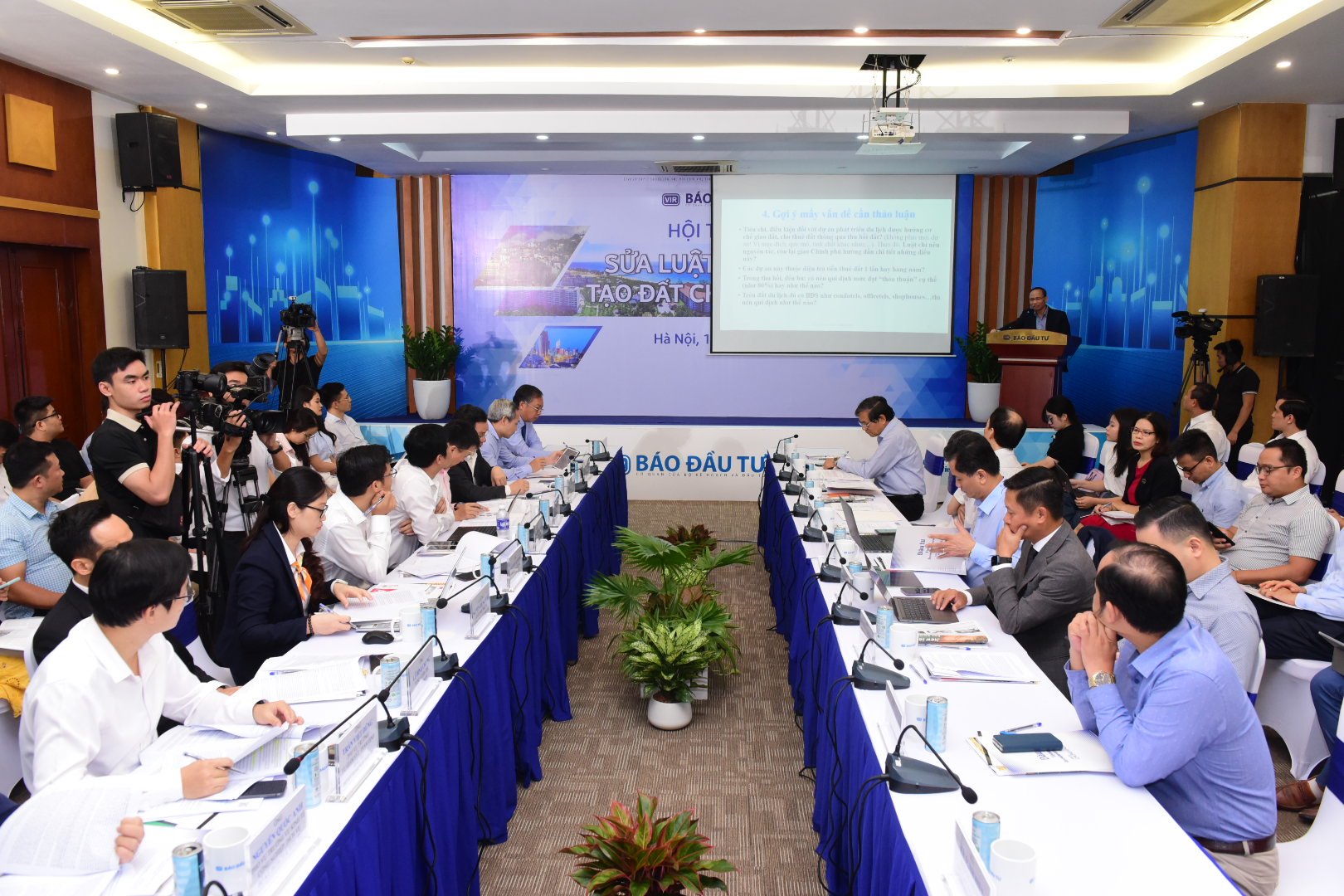
Scientific workshop with the theme "Amending the Land Law: Creating land for tourism". (Photo: DT)
As a result, after 2019, legal issues related to tourism real estate began to arise. When there was a request for review, a series of projects were suspended due to land allocation regulations and as a result, until now, those projects are still suspended waiting for a new legal framework.
“For tourism to truly become a key economic sector, I think the new Land Law needs to have specific regulations on tourism land. At the same time, there must be truly open policies and mechanisms on land, taxes, investment, etc. for tourism to develop.
Economic development in each stage has different priorities. When we have identified tourism as the spearhead, tourism projects such as amusement parks, entertainment complexes, multi-purpose complexes, etc. must be added to the list of land recovered by the State for socio-economic development," Mr. Chung proposed.
Real estate legal expert Nguyen Van Dinh also pointed out another inadequacy in the Draft Law on Land (amended), which is in cases of land recovery for socio-economic development for national and public interests.
The draft only stipulates land recovery for mixed housing, commercial and service projects if decided by the Provincial People's Council in accordance with local conditions.
Thus, the project must "stick" to a part of the residential function (no regulation on the level or percentage) for the State to reclaim the land.
“I agree with the view that land should be reclaimed for purely tourism, entertainment and recreation projects (without residential functions). However, in locations suitable for tourism, priority should be given to reclaiming land to implement key tourism projects, creating momentum for socio-economic development for the locality, and even creating momentum to spread to the entire region,” Mr. Dinh expressed.
Mr. Dinh analyzed that in reality, if land acquisition is not allowed, it is impossible to implement large-scale projects to attract potential and capable investors. If the current draft law is maintained, the implementation of key tourism projects will be blocked. To implement tourism, entertainment and recreation projects, localities are forced to "insert" a part of residential land (possibly a very small proportion) into the project's planning scheme to meet the conditions for land acquisition.
This form of “dodging” will cause consequences. The residential land fund is not used, causing waste of resources or if used, it will form a residential function within the scope of the tourism project. The long-term residence of residents in the project will reduce the level of luxury of a resort tourism project. Therefore, Mr. Dinh believes that it is necessary to add to Article 79 of the draft the case of land recovery to implement purely tourism, entertainment and recreation projects without housing functions.
Source


![[Photo] National Assembly Chairman Tran Thanh Man chairs the 8th Conference of full-time National Assembly deputies](https://vphoto.vietnam.vn/thumb/1200x675/vietnam/resource/IMAGE/2025/9/29/2c21459bc38d44ffaacd679ab9a0477c)

![[Photo] General Secretary To Lam receives US Ambassador to Vietnam Marc Knapper](https://vphoto.vietnam.vn/thumb/1200x675/vietnam/resource/IMAGE/2025/9/29/c8fd0761aa184da7814aee57d87c49b3)
![[Photo] Many streets in Hanoi were flooded due to the effects of storm Bualoi](https://vphoto.vietnam.vn/thumb/1200x675/vietnam/resource/IMAGE/2025/9/29/18b658aa0fa2495c927ade4bbe0096df)
![[Photo] General Secretary To Lam attends the ceremony to celebrate the 80th anniversary of the post and telecommunications sector and the 66th anniversary of the science and technology sector.](https://vphoto.vietnam.vn/thumb/1200x675/vietnam/resource/IMAGE/2025/9/29/8e86b39b8fe44121a2b14a031f4cef46)

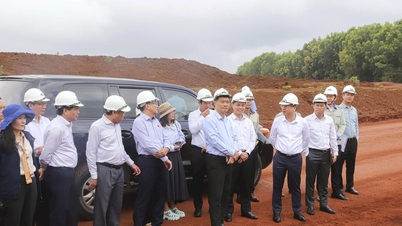









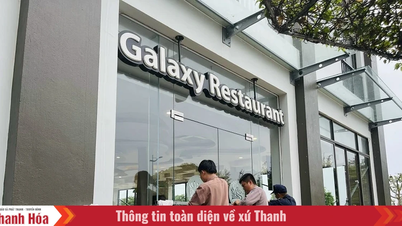




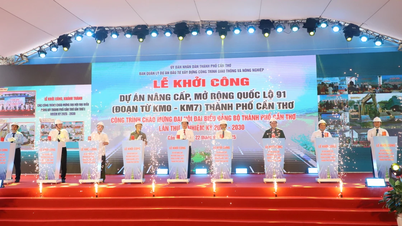




















































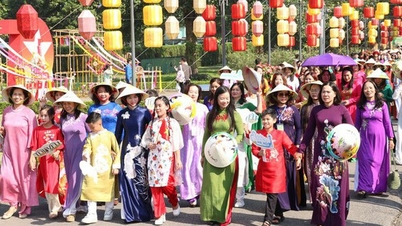









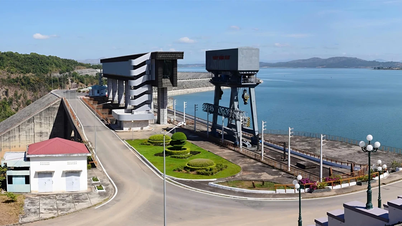


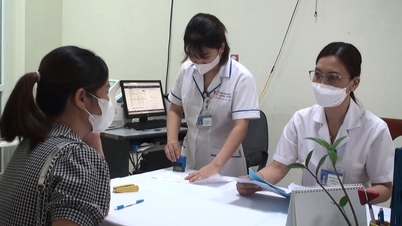


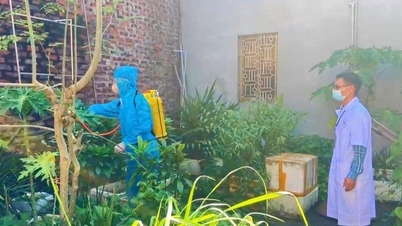













Comment (0)